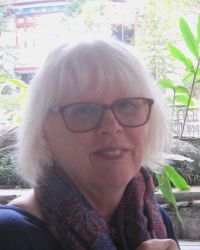Sue McRitchie talks... mindlessness
I have an ex-colleague who would insist on referring to mindfulness as mindlessness! A Freudian slip of the tongue? I found myself, today, reflecting on this and thinking, perhaps this was not such a strange malapropism after all.
How often have you arrived at work, with no real recognition of the journey you have just made? Perhaps you have come to the end of a television programme or film and realise you have no idea what happened. Or maybe you have held a conversation without really engaging your brain and interacting with the person you are talking to.
The world can be full of potentially ‘mindless’ noise and chatter and our brains can so easily be distracted from the task in hand. More often than not these small absences can be of little, or no, consequence; merely distractions in a busy day or mind. Sometimes, however, being mindless can be damaging, not only to ourselves but others too.
A mindless act of overtaking can have a catastrophic impact for an on-coming motorist, changing lives beyond recognition. A mindless remark to a loved one can wound and scar. Less damaging but equally important is the number of occasions we eat in a mindless fashion – leading to all sorts of negative consequences for our health and well-being.
For some people, this lack of care and thought about the implications of their actions stems directly from a reckless and compulsive lifestyle. But for the majority of the population who are caring, thoughtful and socially adept individuals such behaviour is curious.
Do you remember the poem by William H Davies the first and last two lines of which are quoted below?
What is this life if full of care, We have no time to stand and stare?
A poor life this, if full of care, We have no time to stand and stare.
How much richer our lives could be if we helped ourselves to become more aware – ‘mindful’ - of our everyday lives and the actions within them.
To live mindfully is to be more ‘in the moment’ – more actively aware and conscious of what you are thinking and feeling, doing and saying and to notice the small things which can if we choose to, give us a greater appreciation of the world around us. Last year this column discussed mindfulness and how with practice, the technique, can have a positive impact on our health and well-being.
There is no time like the present really to challenge yourself, to take the time to find a new way of being. Make the commitment to avoid the mindlessness of your life and, little-by-little, bring yourself into a greater awareness.
A small step to achieving some calm in your life.

Find a therapist dealing with Mindfulness
All therapists are verified professionals
